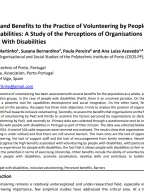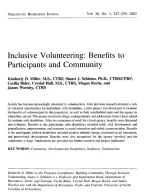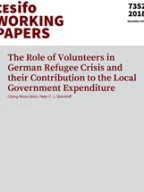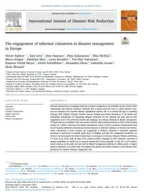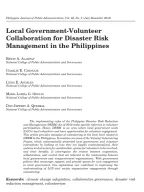|
The important role of volunteers in humanitarian response is still often overlooked, both in research and practice (IFRC 2018). To date, most of what we know about volunteers is anecdotal.
|
Distinctive contributions of volunteers
|
-
The SWVR 2018 suggests that communities in crisis value local volunteering for two main reasons. Firstly, volunteering gives people the ability to self-organize around their own priorities. Secondly, communities find that the solidarity, empathy and connections generated through social action provide a form of protection when times are hard.

|
Planning and preparedness
|
-
Self-organised voluntary groups and individuals, often called ‘spontaneous volunteers’, play crucial roles in the immediate response to disasters and saving lives.
-
Approximately 80 per cent of survivors of the Tangshan earthquake in China, for example, were rescued by spontaneous volunteers who were able to quickly self-mobilize
- Local actors have often been seen as particularly important in contexts where access for international aid actors is restricted.However, even in these environments local volunteers are rarely directly involved in humanitarian planning and preparedness efforts.
|
Coordination between volunteers and other actors
|
-
Establishing clear coordination measures between volunteers and other actors is crucial for an agile, efficient and creative response.
-
Evidence shows that more inclusive models of disaster management are needed to build on the existing capacities and resilience within communities.
-
Emergency managers must account for time not only to assess protocols to place spontaneous volunteers in appropriate roles, but also to develop management techniques that guide them in those roles following key principles for effective volunteering
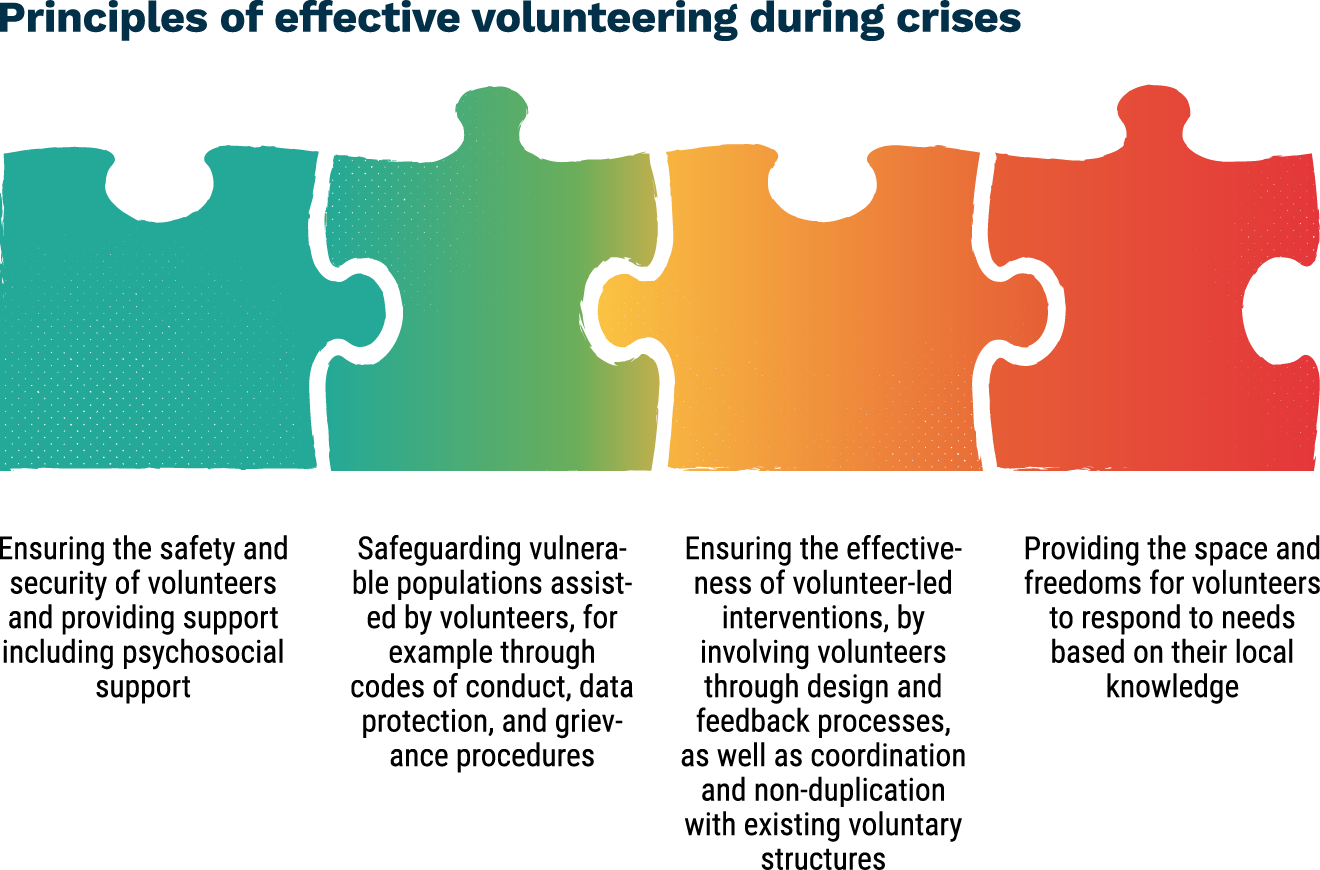
|
Perspectives of volunteers
|
- Proximity, trust and embeddedness within communities are essential elements for humanitarian effectiveness.
-
However, evidence on the lived experiences of humanitarian volunteers remains limited. Recent research by the Volunteering in Conflicts and Emergencies Initiative (ViCE) found that because local volunteers are at the heart of humanitarian response, they often face risks to their safety, security and well-being.
-
As many ‘volunteers’ are also ‘victims’ themselves, they are faced with the uncertainties of working to manage local tensions as members of those communities while also adhering to humanitarian principles: “Then I come into my senses and say what is happening to me? I am also vulnerable. I can also be a victim. The fact of wearing an emblem is not, is not a bulletproof vest” (Female volunteer in conflict area).
|
Gender and inclusion
|
|
Strengthening resilience to shocks
|
-
Community-based volunteers are not only ‘first responders’ in an emergency situation but also remain long after external assistance has left, helping to strengthen resilience to shocks at local levels. As such, they effectively act as the link between humanitarian action and sustainable development.
-
There has been a progressive shift in research towards understanding local capabilities and how these can effectively interact to drive sustainable action through the humanitarian-development-peace nexus. This is based on the notion of ‘resilience humanitarianism’, whereby crisis response “takes into account people’s capacity to respond, adapt and bounce back”.
|















